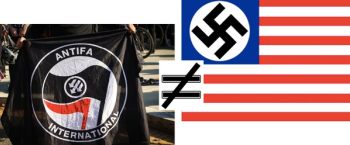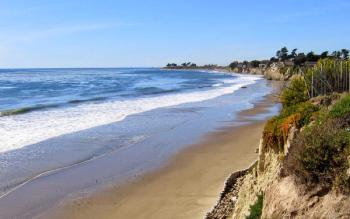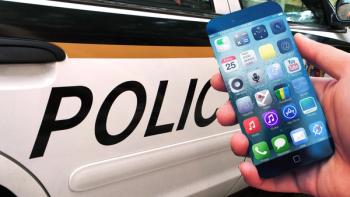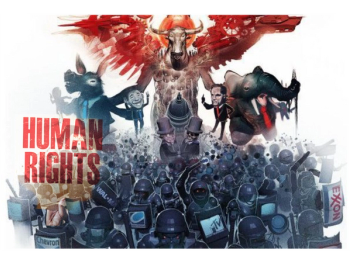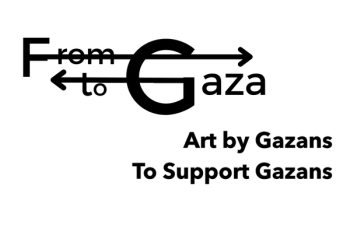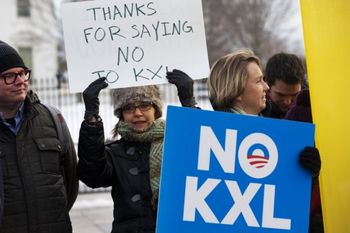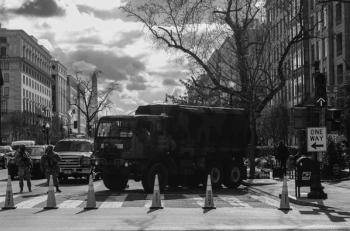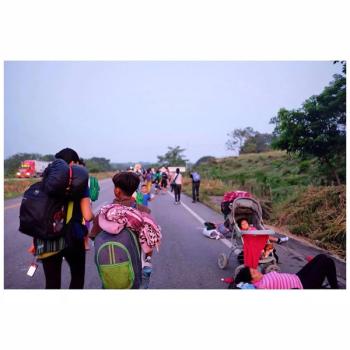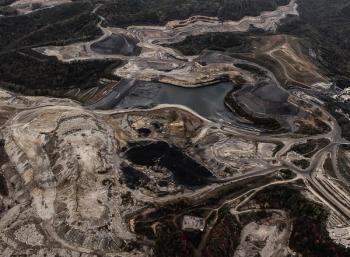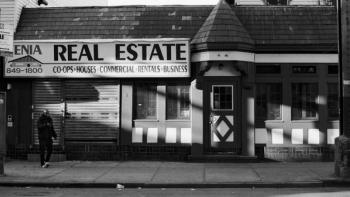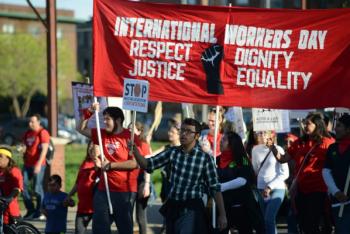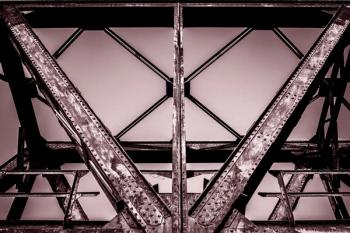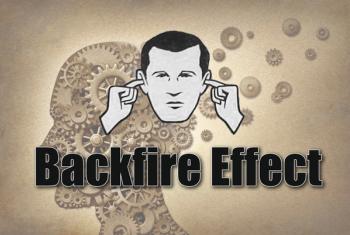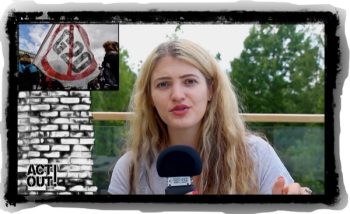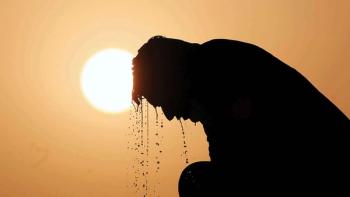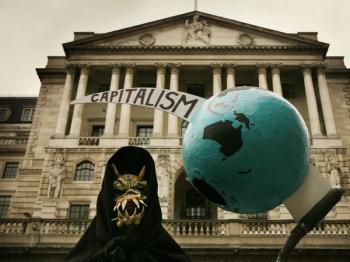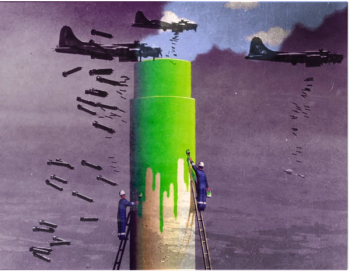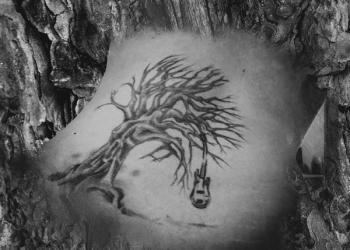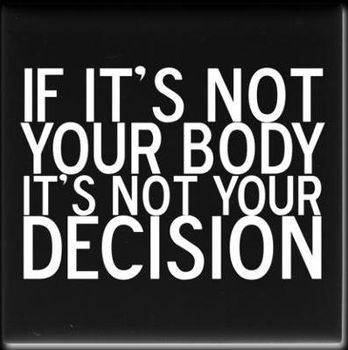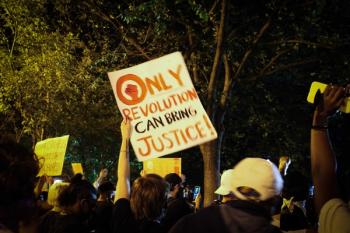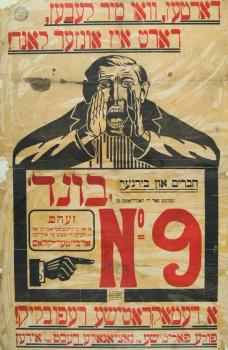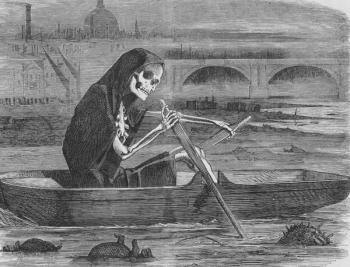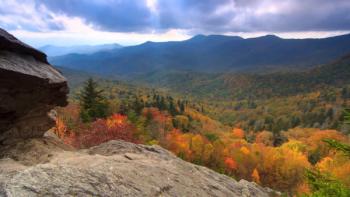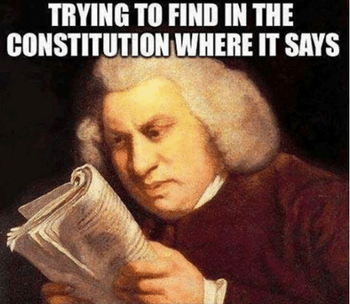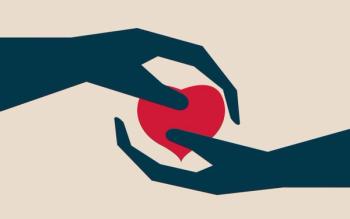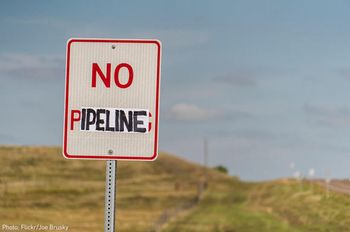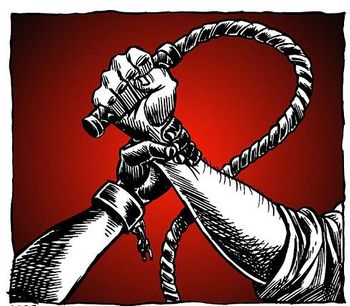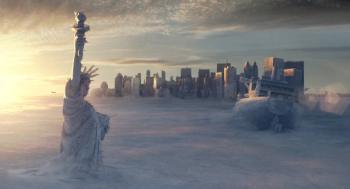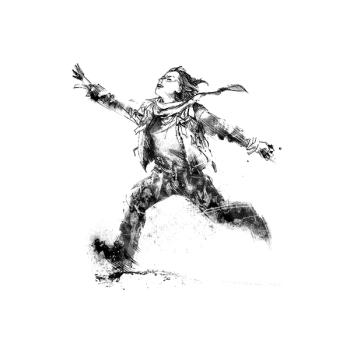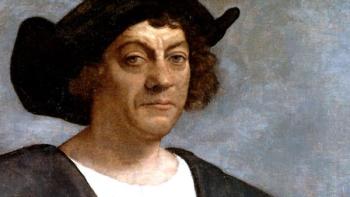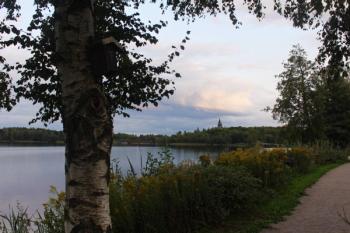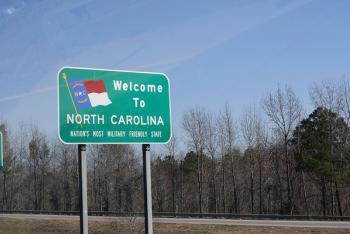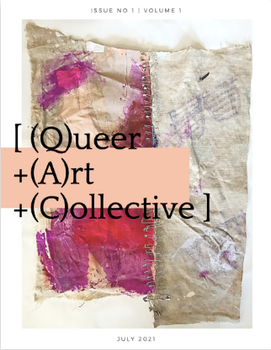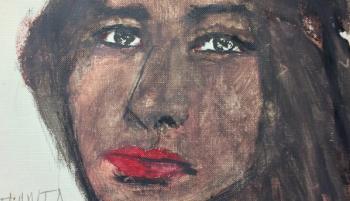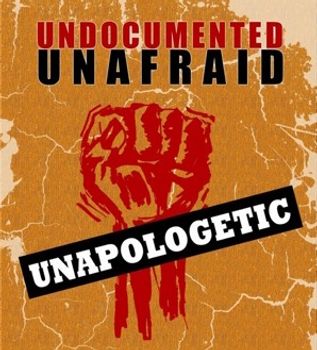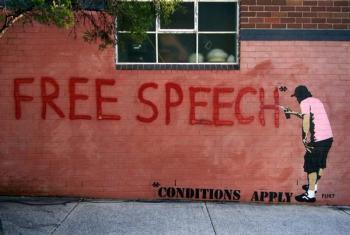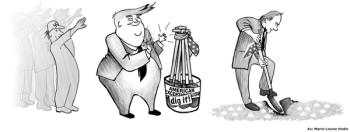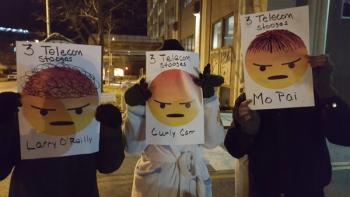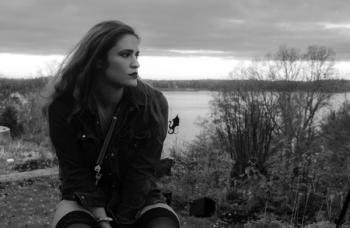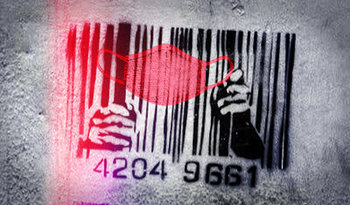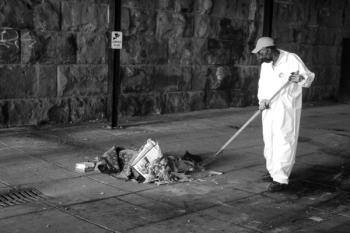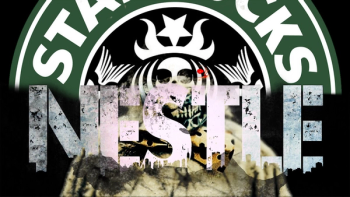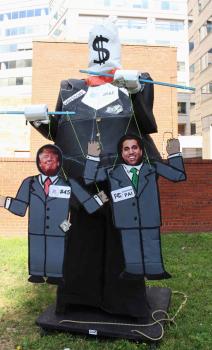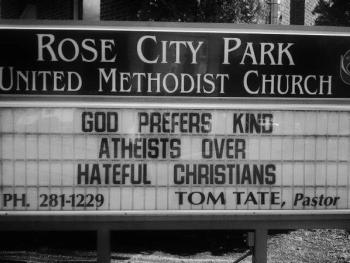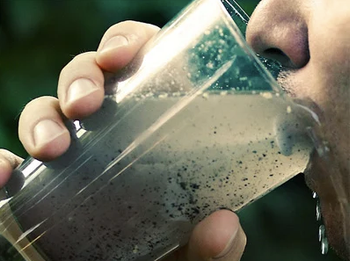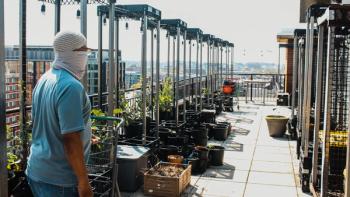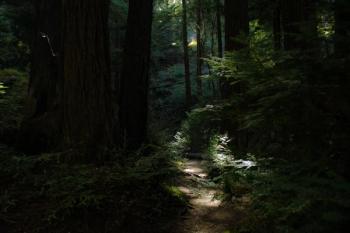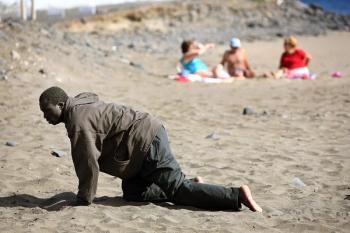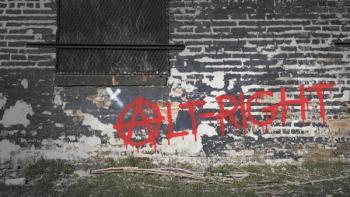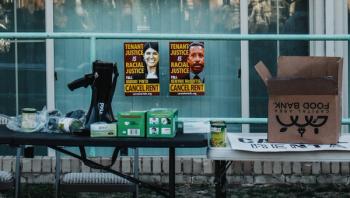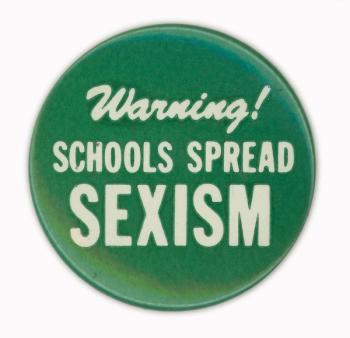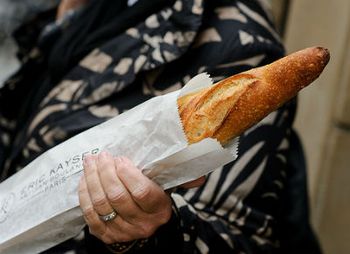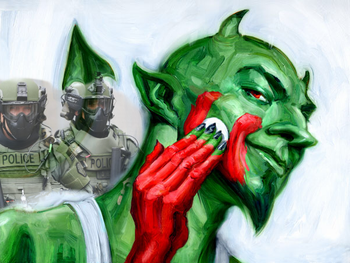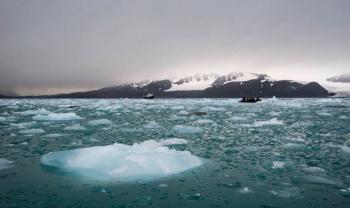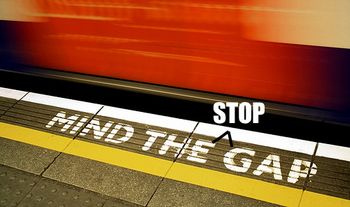
Do We Need Police? That Question Is Not As Crazy As It Sounds
2018-02-19
by Eleanor Goldfield
The first time someone offered up the suggestion to abolish police, I was shocked and confused. I’ve known for a long time that the prison industrial complex is poison, that predominantly black and brown communities are over-policed and underfunded, that for the most part cops are assholes — but even with all that, the idea of doing away with cops entirely seemed unacceptable to me. We need cops, I thought. But why? Why are cops necessary?
Well, first off, let’s consider why they were ever necessary to begin with.
Though a child of the British empire, American policing did not last long in its shadow. Today’s U.S. police forces are not descendants of what’s known as the Peel model; the citywide police force suggested by home secretary Robert Peel and accepted by Parliament in 1829. Our trajectory, though also based on oppressive goals, wasn’t formulated as a response to Irish dissidents like Peel’s model was. Ours was based on slavery.
Professor Dennis Rousey wrote in his book, Policing the Southern City: New Orleans, 1805-1889 that the “first major reform of the traditional system did not occur in any of the big northwestern cities in the mid-1800s but in the cities of the Deep South in a much earlier period. As early as the 1780s Charleston introduced a paramilitary municipal police force primarily to control the city’s large population of slaves. In later years, Savannah, New Orleans and Mobile did the same.” As industrialization came to the south, the practice of hiring out slaves in the cities became a lucrative but concerning practice. With the slaves outside the scope of the master’s direct control, who was going to ensure their continued subjugation and have the authority to stamp out dissent before it spread? Well, the state. Thus, the slave patrol evolved from rogue plantation-based vigilantes to a more organized force. As Sally E. Hadden writes in her book, Slave Patrols, “…the new American innovation in law enforcement during the eighteenth and early nineteenth centuries was the creation of racially focused law enforcement groups in the American south.” In short, the cohesive police force that we know today is descended from slave patrols. And if you look into present police conduct and culture, you’ll see the family resemblance.
Earlier this month (February 2018), records that surfaced in a court briefing showcollusion between Sacramento police and white supremacists. In June of 2017,Portland police allowed an alt-right militia member to assist them in arrests. In Charlottesville last summer,police stood by and watched as fascists charged and beat counter protesters just a few hours before a right wing terrorist drove full speed into a crowd of people, killing one young woman. The black man who was severely beaten by white supremacists on that same day was later HIMSELFcharged with felony assault. Here in DC, police officers routinely patrol majority black neighborhoods wearing white power garb. Last year, an MPD officer wore a white power shirt to court prompting abullshit apology from MPD. Last year again,two officers were fired from the Williamson County, Texas police department after it came to light that they were members of the KKK. Then of course there’s the glaring fact that, in 2016, “Black males aged 15-34 werenine times more likely than other Americans to be killed by law enforcement officers…” “They were also killed at four times the rate of young white men.” Black women are also at a higher risk of police violence. Arecent study showed that 57.2% of black women killed by police were unarmed, compared to only 19.8% of white men killed who were unarmed. African Americans constitute roughly 12% of the population but make up themajority (33%) of the prison population. They are more likely to be stopped, questioned, searched and summarily arrested. Particularly when it comes to drugs, blacks make up32% of people arrested for drug possession while again making up only 12% of the population AND doing drugs at the same rates as whites.
These numbers and stories are but a minute sampling of law enforcement racism – the evolution from slave patrol to “Blue Lives Matter” 21st century white supremacists.
Still, this doesn’t make a case against police as an institution. What about good cops?
Ah yes, the good cops. Well, it turns out that good cops are neither recruited nor nurtured.Speaking with former Philadelphia police captain Ray Lewis, he told me that recruits undergo empathy tests in order to see if they’re too soft for the job. If you score too empathetic, the force doesn’t want you. The thinking, he says, is that the cop won’t be able to deal with the hardships of the job and will quit. Lewis’s question was then, why don’t they make emergency room doctors take an empathy test? Well, because we want our emergency room doctors to be empathetic, we want them to care. When it comes to cops, however, we want them to be stoic machines of law and order. Of course, the “we” here is not you and me.
This is of course the primary problem with the institution of policing: they don’t actually serve or protect us. Since the days of the slave patrol, the goal was and is to keep the order of the status quo, the order of the masters. Today, the goal is to maintain the order of the capitalist system, not protect the rights of those living under it. Otherwise, we wouldn’t have seen cops alongside mercenaries at Standing Rock attacking peaceful water protectors with dogs and high pressured water hoses in sub-zero temperatures. We wouldn’t see military weaponry used against us by the police, courtesy of the political machine and the military industrial complex. We wouldn’t see cops arresting people for standing on sidewalks, desperate tocreate criminals in order to justify their job nor would we see them stealing blankets from the homeless or arresting people for feeding the homeless as I covered inmy previous article. We wouldn’t see cops kettling and arresting bystanders and media at the Inauguration protests. We wouldn’t see cops dragging people out of hearings held for the sale and destruction of planet for profit. We wouldn’t see cops colluding with ICE agents to rip families apart. We wouldn’t see cops murdering people then backing up their actions with cries of “Blue Lives Matter” at a time when being a cop is safer than being a fisherman. No, really. A 2015 Bureau of Labor study showed that fishermen and loggers were 10 times more likely to die on the job than cops. Furthermore, cops are many times more likely to commit suicide than to be killed by a criminal. If you really want “blue lives” to matter, you might start by providing mandatory and quality mental health care.
Be it a crisis of conscience when faced with PD atrocities or complying with the expected level of violence, cops don’t have many places to turn for help. Captain Lewis told me of his own issues accessing mental health care inside the police force. Psychological support was so lacking that after one atrocious meeting with a police psychiatrist, Lewis took matters into his own hands and turned to mantras and meditation in order to deal with his brutal tendencies. He said that if an officer seeks psychological help, they’re ridiculed by other officers and treated like an outcast. The backlash is even worse if an officer actually tries to stand up to wrongdoing that they encounter inside the force. Recently, an officer won anunusual $175,000 settlement after being fired for NOT shooting his gun and killing a 23-year old suspect. Other cops havewritten op-eds and appeared in interviews, like mine with Ray Lewis, recounting how they or colleagues they know were fired or otherwise punished for being a “good cop.”
The idea that these issues could be fixed with reform is, in short, unrealistic. Police training is very problematic, yes. It is racist, violent and triggers the most unforgiving, bigoted, remorseless and arrogant parts of our psychology. The problem, however, is that it has to be. It is a function of the system from which it stems. All the previous mentions – from Standing Rock to stealing blankets – are legal. In his latest show,Lee Camp brilliantly outlined the legality of atrocities such as war crimes vs. the illegality of things such as camping on your own property. Cops, by their own admission and PR tag-line, are there to promote law and order. Well, the laws are those of, for, and by the oligarchs. The order is the perpetuation of an oppression just strong enough to keep us down without passing the threshold of revolutionary blowback.
So long as cops exist, they will exist not to keep us safe but to keep the powers-that-be safe from us. They will be recruited and trained on the premise that we, the people, must be kept in check – particularly as the capitalist empire in decline swells the ranks of the disenfranchised, dispossessed and discarded. Incremental reforms may help here and there but at its core, the institution of policing, like capitalism, is rotten.
Still, one cannot ignore the obvious point that safety is important, that cops do sometimes serve the role of stopping or mitigating crime. The question is whether they do it well and if not, who or what could do it better?
In his book, Our Enemies in Blue, Kristian Williams dedicates a full chapter to alternatives to policing. He points out that the concept of abolishing police is so heretical because the police are sold to us as protectors of the peace and our own personal and community safety. But there are better ways – ways that decouple safety from white supremacy, and order from capitalist oppression. “The challenge is to create another system that can protect us from crime, and can do so better, more justly, with a respect for human rights, and with a minimum of bullying. What is needed, in short, is a shift in the responsibility for public safety – away from the state and toward the community.” He goes on to outline tens of examples of successful community-led public safety endeavors: CLASP (Citizens Local Alliance for a Safe Philadelphia), WAR (Women Against Rape), UBUNTU, Safe Outside the System, the Ella Baker project, the Hysteria Collective, Creative Interventions and others.
Here in DC today, community organizers have rallied around the now fully funded NEAR Act, a program that works through “empowering respected community members to act as conflict mediators, combining that with particularly tailored access to social programs to help people change their circumstances.” Such programs have already been used in Chicago, Baltimore, New York and Richmond, CA withgreat success.
History and the present prove that while we need people to stand up for community safety, those people are not the police. We are those people. This is, as I mentioned earlier, difficult and indeed dangerous to accept. It is not, and will not be, easy to build alternatives to a state while that state surveils, harasses and oppresses its people. Such organizing and building will require outreach and collaboration with those we don’t always agree with – but are willing to work with on behalf of our mutual safety and freedom. Indeed, when we say “All Cops are Bastards” (ACAB), we do not mean that all people who go into policing want to harm the public, but rather that the institution of police ultimately harms the public. It’s in its DNA. Instead of trying to reform the beast, evolve past using the beast all together. Reach out to would-be police recruits and encourage them to work on community-based safety endeavors instead. Encourage anyone you know in the police to leave and share their story. Use previous examples and current programs as guidelines for your own community.
As Williams writes in his chapter on police alternatives, “…the assumption that the police represent a social inevitability ignores the rules of logic: if we accept that police forces arose at a particular point in history, to address specific social conditions, then it follows that social change could also eliminate the institution…It is a bad habit of mind, a form of power-worship, to assume that things must be as they are, that they will continue to be as they have been. It soothes the conscience of the privileged, dulls the will of the oppressed. The first step toward change is the understanding that things can be different. This is my principal recommendation, then: we must recognize the possibility of a world without police.”
**NOTE: There is much more that can and has been written about the history of police. I recommend Kristian Williams’ book,Our Enemies in Blue for continued reading on the subject.
(To continue the fight against censorship and suppression of antiestablishment news outlets, become a patron of our work via the Patreon button at the bottom of this page or join the free newsletter.)
(Published in collaboration with LeeCamp.com)
